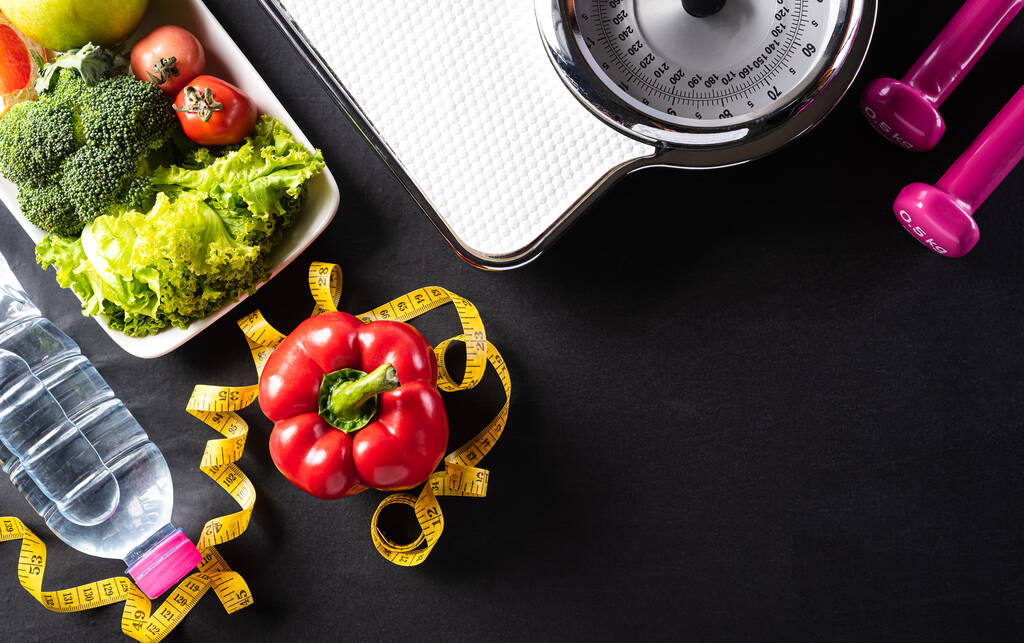Discover the potential link between diet and cancer prevention.
Can Diet Help Prevent Cancer?
Can diet really make a difference when it comes to preventing cancer? It’s a question that’s been on the minds of health-conscious individuals for years. While the link between diet and cancer is complex and not yet fully understood, there is growing evidence to suggest that making certain dietary choices can indeed play a role in reducing the risk of developing this dreaded disease. In this article, we will explore the fascinating world of diet and cancer prevention, from the role of nutrition to the impact of specific foods on different types of cancer. So, hold onto your forks and get ready to discover how your plate may hold the power to protect you!

Understanding the Link Between Diet and Cancer
Before we dive into the specifics, let’s take a moment to understand the connection between what we eat and the development of cancer. Our bodies are intricate machines that rely on a delicate balance of nutrients, vitamins, and minerals to function optimally. When we consistently fuel our bodies with unhealthy foods high in saturated fats, added sugars, and processed ingredients, we disrupt this balance, creating an environment that is ripe for cancer to take hold. On the flip side, adopting a nutrient-dense, whole foods-based diet can help strengthen our defenses and reduce the risk of cancer development.
Did you know that the World Health Organization estimates that up to 30% of all cancer cases are directly linked to poor diet and lack of physical activity? It’s a staggering statistic that highlights the importance of making conscious choices about what we put into our bodies. By understanding the role of nutrition in cancer prevention, we can take proactive steps to protect ourselves.
The Role of Nutrition in Cancer Prevention
It’s not just about the calories we consume; it’s about the quality of those calories. A diet rich in fruits, vegetables, whole grains, and lean proteins provides our bodies with the essential nutrients needed to ward off cancer-causing agents. These nutrients act as warriors, defending our cells from damage and helping to repair any DNA imbalances that may occur.
Let’s take a closer look at some of these cancer-fighting nutrients. Fruits and vegetables, especially those with vibrant colors like berries, leafy greens, and tomatoes, are packed with phytochemicals and antioxidants. These compounds have been shown to neutralize harmful free radicals, which can cause DNA damage and lead to cancer development. Whole grains, such as brown rice and quinoa, are rich in fiber and can help regulate blood sugar levels, reducing the risk of insulin resistance and inflammation – both of which are linked to cancer.
When it comes to protein, opting for lean sources like chicken, fish, and legumes can provide essential amino acids without the added saturated fats found in red and processed meats. These lean proteins also contain other beneficial compounds like selenium and zinc, which play a role in DNA repair and immune function.
Incorporating a variety of colorful produce into your meals will ensure you’re getting a wide range of phytochemicals, antioxidants, and fiber – all crucial players in the fight against cancer. So, the next time you’re at the grocery store, make it a point to fill your cart with an assortment of fruits and vegetables to support your body’s defense against cancer.
How Unhealthy Eating Habits Contribute to Cancer Risk
In our modern society, it’s all too easy to fall into the trap of unhealthy eating habits. Fast food joints on every corner, ultra-processed convenience foods, and sedentary lifestyles have become the norm. Unfortunately, these habits contribute significantly to our cancer risk.
We’re not trying to ruin your fast food fry parade, but it’s time to face the facts: consuming excessive amounts of unhealthy fats, sugars, and empty calories can lead to obesity, inflammation, and an increased risk of developing various cancers. Obesity, in particular, is a well-established risk factor for several types of cancer, including breast, colorectal, and pancreatic cancer.
When we consume high amounts of unhealthy fats, our bodies store the excess as visceral fat, which surrounds vital organs and releases inflammatory chemicals. This chronic inflammation can damage DNA and disrupt normal cell function, increasing the likelihood of cancer development. Additionally, excessive sugar consumption can lead to insulin resistance, a condition in which the body’s cells become less responsive to insulin. Insulin resistance has been linked to an increased risk of certain cancers, such as endometrial and liver cancer.
It’s time to put down that supersized soda and start making better choices for our bodies! By reducing our intake of unhealthy fats, sugars, and empty calories, and instead focusing on nutrient-dense whole foods, we can significantly reduce our risk of cancer. It may not always be easy, but the long-term benefits are well worth the effort.
Key Nutrients for Cancer Prevention
Now that we understand the importance of a healthy diet in cancer prevention, let’s dive into some of the key nutrients that deserve a front-row seat on your plate.
When it comes to cancer prevention, antioxidants are like the body’s personal superheroes. They swoop in to neutralize harmful free radicals, unstable atoms that can damage our DNA and increase cancer risk. Vitamin C, vitamin E, and selenium are just a few of the superhero antioxidants that can be found in foods such as citrus fruits, nuts, and seeds.
But how do these antioxidants actually work? Well, imagine free radicals as tiny troublemakers wreaking havoc in your body. They can cause oxidative stress, leading to inflammation and damage to cells. Antioxidants, on the other hand, are the defenders of your body, fighting off these troublemakers and preventing them from causing harm. So, next time you’re craving a snack, reach for a handful of almonds instead of those greasy chips!
Now, let’s talk about another important nutrient in cancer prevention: fiber. While fiber may not have the flashy reputation of antioxidants, it certainly plays a crucial role in keeping cancer at bay. This indigestible carbohydrate sweeps through our digestive system, helping to regulate blood sugar levels, maintain healthy cholesterol levels, and promote regular bowel movements.
But what does this have to do with cancer, you ask? Well, a diet high in fiber has been linked to a reduced risk of colorectal cancer. When fiber moves through your intestines, it adds bulk to your stool and helps it pass more quickly through your system. This means that any potential carcinogens in your colon have less time to come into contact with the cells lining your colon, reducing the risk of cancer development.
So, load up on whole grains, legumes, and fruits to get your daily dose of fiber. Whole grains like brown rice, quinoa, and oats are not only rich in fiber but also packed with other nutrients that can help in cancer prevention. Legumes such as lentils, chickpeas, and black beans are also excellent sources of fiber and provide a good amount of plant-based protein.
Additionally, fruits like berries, apples, and pears are not only delicious but also high in fiber. They make for a great snack or a tasty addition to your breakfast bowl. So, let the fibers work their magic and keep cancer at bay!
Foods to Include in a Cancer-Preventing Diet
Now that we’ve got our nutritional superheroes lined up, let’s explore some of the fabulous foods that can help prevent cancer.
Fruits and Vegetables: Nature’s Cancer Fighters
If there’s one thing your grandmother was right about, it’s the importance of eating your fruits and vegetables. Packed with vitamins, minerals, fiber, and antioxidants, these colorful wonders have been shown to protect against a variety of cancers, including lung, stomach, and esophageal cancers. So, grab an apple, crunch on some carrots, and embrace the natural cancer-fighting power of produce!
The Power of Whole Grains in Cancer Prevention
Whole grains are more than just a trendy food fad. They provide us with a wealth of cancer-fighting properties, thanks to their high fiber content and a myriad of other essential nutrients. Research suggests that including whole grains in our diet can help reduce the risk of colorectal cancer, thanks to their ability to regulate digestion and promote a healthy gut. So, swap out your refined bread and pasta for whole grain versions, and let your taste buds and your body reap the benefits!
Foods to Avoid for Cancer Prevention
Just as certain foods can help lower our cancer risk, we must also be mindful of those that have been associated with an increased risk. Here are a few culprits that you may want to limit or avoid altogether.
The Dangers of Processed Foods
We get it – processed foods are convenient, tasty, and often hard to resist. However, that convenience comes at a price, and it’s one we shouldn’t be willing to pay. Processed meats, packaged snacks, and sugary treats are often loaded with additives, preservatives, and artificial ingredients that have been linked to an increased risk of cancer. So, next time you find yourself reaching for that neon orange cheese puff, put it back and grab a wholesome snack instead. Your body will thank you!
Red and Processed Meats: A Cancer Risk?
This one may be hard for some of you to swallow, but the evidence is mounting. Consuming large amounts of red and processed meats, such as bacon, sausages, and hot dogs, has been linked to an increased risk of colorectal and stomach cancers. While we’re not suggesting you give up your beloved burger entirely, it may be wise to limit your intake and opt for leaner protein sources, such as poultry, fish, and plant-based alternatives.
The Impact of Dietary Choices on Specific Types of Cancer
Okay, now it’s time to get personal. Let’s take a closer look at how dietary choices can affect the development of specific types of cancer.

Diet and Breast Cancer: What’s the Connection?
When it comes to breast cancer, what we put on our plate matters. While the research is still ongoing, studies have suggested that a diet rich in fruits and vegetables, low in saturated fats, and moderate in alcohol consumption may help reduce the risk of breast cancer. So, ladies, let’s raise our leafy greens and toast to breast health!
Prostate Cancer and Diet: Is There a Link?
When it comes to keeping the prostate happy and healthy, diet may play a role. Some studies have shown that diets high in fruits, vegetables, and whole grains may lower the risk of developing prostate cancer. On the flip side, diets high in red and processed meats, saturated fats, and calcium may increase the risk. So, gentlemen, make room on your plate for those colorful veggies and whole grains to keep your prostate smiling!
In conclusion, while diet alone cannot guarantee complete protection against cancer, it can certainly help stack the odds in our favor. By adopting a balanced, nutrient-rich eating plan and focusing on incorporating cancer-fighting foods into our daily meals, we can take a proactive approach to reducing our risk. So, let’s raise our forks and savor the delicious journey towards a healthier, cancer-free life!







